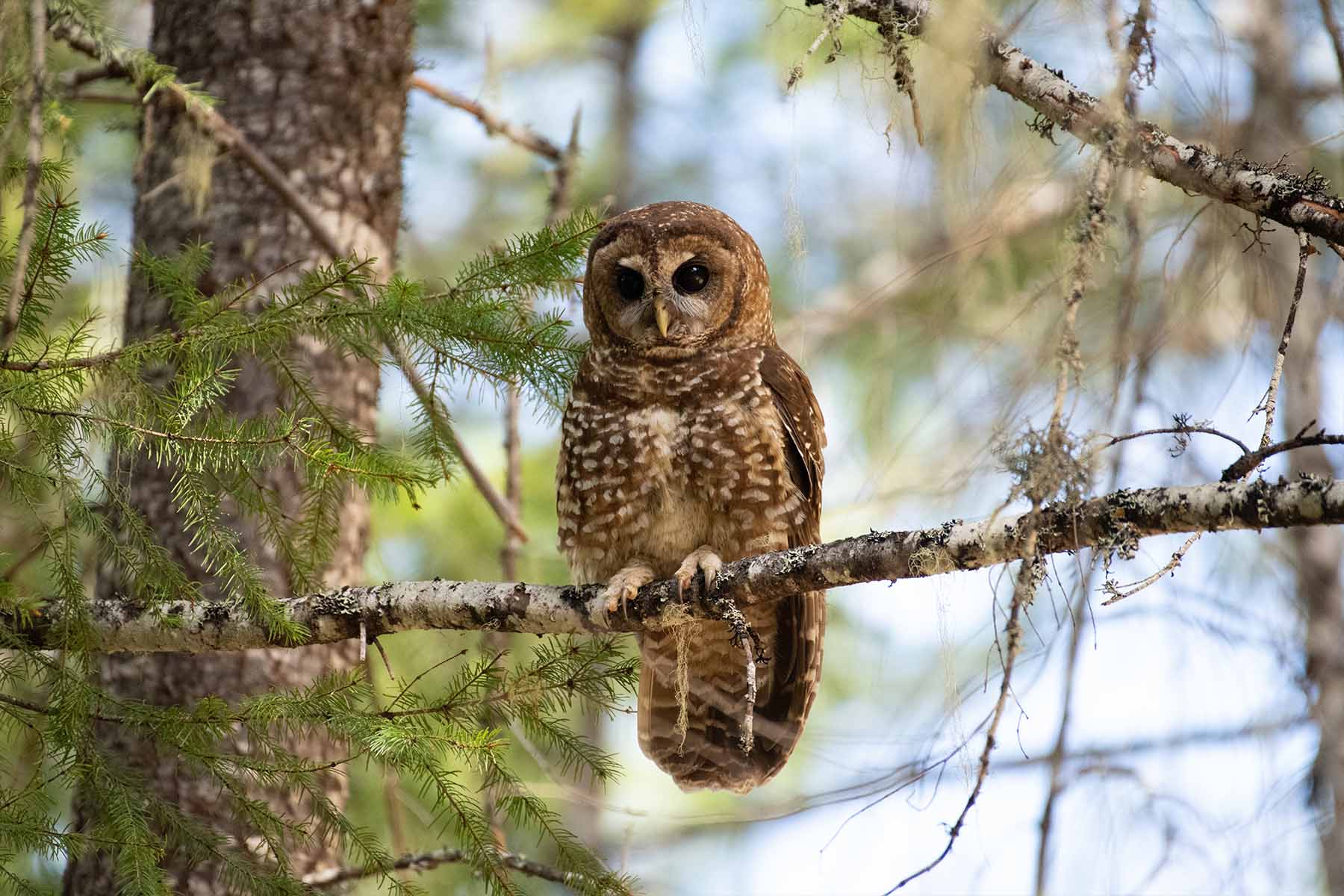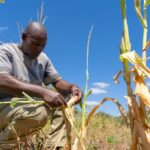
Advocacy group says continued destruction of critical habitat leaves it no choice but to take legal action against Steven Guilbeault
Environmental groups in Canada are taking legal action against the country’s environment minister, arguing his delay in protecting old growth forest is harming the critically endangered northern spotted owl.
In February, Steven Guilbeault said he would recommend an emergency order after determining the species was facing “imminent threats” to its survival.
Emergency orders are a powerful tool under Canada’s endangered species legislation and have been used only three times in the country’s history, including once by Guilbeault. They grant the federal government jurisdiction over decisions typically reserved for a province, including the ability to dictate which forests are off limits to logging.
Decades of old growth clearcutting have wiped out much of the northern spotted owl’s habitat in British Columbia, leaving the wild population in Canada at just one female, down from about 40 breeding pairs in the 90s.
The minister initially determined that old-growth logging must stop within an area of the Spô’zêm Nation territory, including the Spuzzum and Utzlius watersheds, as well as a further 2,500 hectares (6,200 acres) of forest habitat at risk. But in the four months since Guilbeault announced plans for an emergency order, environmental groups say he has failed to follow through.
“The minister is legally obligated to make an emergency order recommendation to cabinet to protect this iconic species – any further delay is unacceptable,” said Rachel Gutman, a lawyer with Ecojustice, which is representing the advocacy group Wilderness Committee. “With the logging season upon us and only one owl remaining in the wild, the failure to immediately protect the species’ remaining habitat risks the extirpation of the spotted owl from Canada.”
Joe Foy, a spokesperson for Wilderness Committee, said: “We’ve been insanely patient as we wait for the federal government to put their spotted owl recovery strategy in place and for the minister to recommend an emergency order, even though we’ve watched spotted owl numbers dwindle down extremely low. But the situation we’re in now is alarming.”
In late May, Foy and Geoff Senichenko, a mapper with Wilderness Committee, travelled to areas in British Columbia that the federal government had previously indicated would become “critical habitat” as part of its spotted owl recovery plan, a powerful designation which would halt logging under federal law.
Foy alleges logging companies have raced to harvest those areas before they are formally designated off limits. “We saw areas that had been mapped as critical habitat already logged, we saw areas where there’s critical habitat being logged right now. And we saw areas of standing forest marked as critical habitat in the federal government’s draft spotted owl recovery plan that are pending approval for logging,” he said.
“We’re in a very dire situation. The forest is broken and the federal government has a plan to fix it. But if those forests are logged, it would make the recovery of spotted owls highly unlikely.”
In an interview with the Guardian in April, Guilbeault said he was wary of recommending the emergency order to cabinet because of concerns it could “seriously degrade” the relationship between the province of British Columbia and the federal government, stalling efforts to save a number of other species, including caribou.
“The reality is, it’s a last-resort measure. Because once you do that, there is no more collaboration,” he said. However, he added that fear of damaging the relationship between federal government and the province “can’t be used as an excuse for not acting”.
Last month, two spotted owls from a breeding programme released into the wild were found dead, highlighting the steep challenges in recovering the species. Environmental groups say more protection is needed, arguing the fate of the small predators is a glimpse into the health of the region’s ancient rainforests.
“It’s up to citizens to try to do the right thing,” Foy said of the lawsuit. “Clearly, we’ve tried everything else. And it’s our responsibility to try this too.”
Source: The Guardian





